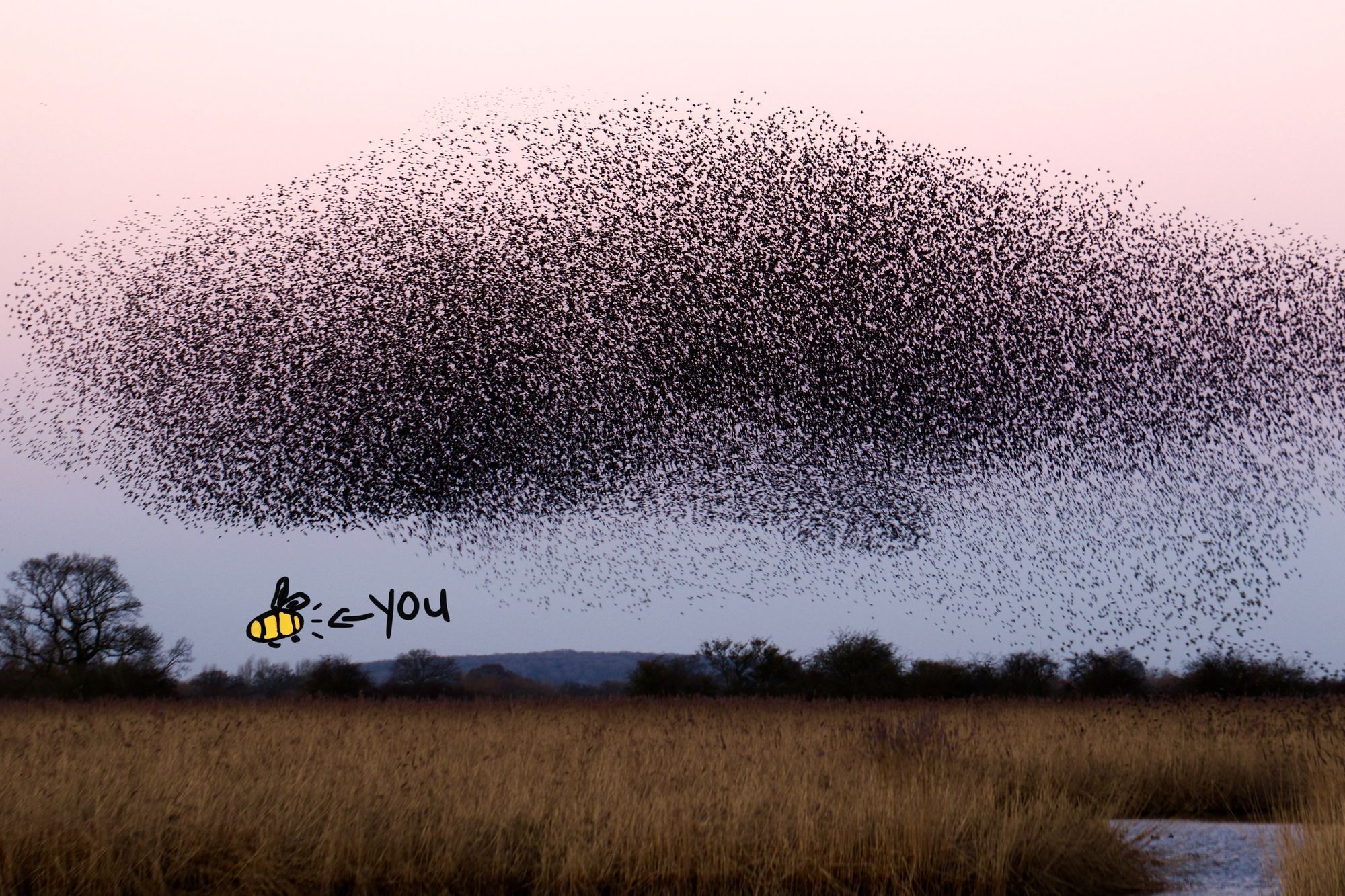What if you did the exact opposite? (like the rogue bees do)

Bees have a dance to indicate to others where food is. It’s called the waggle dance. Great name.
But a significant portion of bees in a hive completely ignore the waggle dance and venture off on their own accord.
Scientists studied this and were perplexed as to why. It seemed the rogue bees had no direction at all (like a modern high-school graduate).
Their adventures were random.
Eventually the researchers realised, the actions of the rogue bees were paramount to the longevity of the hive.
Without them, the hive would get stuck in a local maximum. They’d become so efficient at exploiting their known food locations, they’d end up consuming it all and the hive would die out. You could say they ate themselves to death.
Every so often a rogue bee, one who completely ignored the waggle dance would stumble upon a new food source. Then they’d share the resource with others by doing their own waggle dance.
And the system has been repeating itself for millions of years. All thanks to a bit of short-term ignorance.
The takeaway here is to not underestimate the value of randomness. A rogue bee has very little downside. They wander off from the hive, may go hungry for a while but their upside is unlimited. Discovering a new bed of flowers could supply the hive for months.
Knowing this, it might be worth ignoring the waggle dance of those around you every so often.
The trick is, ignoring it doesn’t mean you lose the ability to do yours. If you find something, by all means, waggle away!
